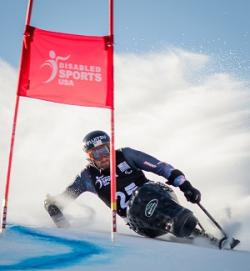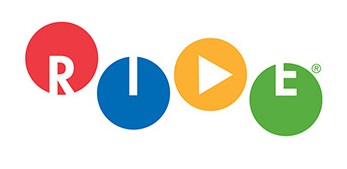Date: Wednesday, November 11, 2015
Category: Member News
Editor’s Note: Ride Designs, a unique practicing seating clinic and manufacturer, was a Gold level sponsor at the RESNA 2015 conference in Denver. We followed up with Tom Hetzel, PT, ATP, CEO, to get his thoughts on the conference, industry trends, and what’s next for the company. 
How was the conference for you?
The fact that it was in Denver was a real treat for us, since we’re based here. We were able to have a lot of our staff attend this year. The breadth of the educational offerings was wonderful. We had a lot of favorable traffic at our booth, and were very pleased with the quality of the attendees.
At the conference, did you learn about any new trends?
I saw a continuing trend that we support as a company, which is that much stronger and valid evidence is now being required from all parties, whether that’s funding sources, referrals, legislators, etc. Everybody needs strong evidence-based outcome measurements for what we’re doing in seating and mobility. At Ride Designs, we’re happy to be on the leading edge of providing that evidence.
There’s quite a bit of consolidation happening now in the seating and mobility industry. What’s your take?
Consolidation can be positive if it results in a stronger voice on Capitol Hill, improved efficiencies, and better support of frontline ATPs so they can focus on their trade. But it shouldn’t result in increasing the challenges that consumers already face in accessing complex rehab technology and related services, or decreasing the breadth of products and services offered. As a relatively small and independent manufacturer, we’re experiencing a lot of pressure on pricing and terms. This pricing pressure from equipment providers and funding agencies works directly against the need to innovate, validate, and elevate CRT as separate benefit category.
Our seat supports are heavily influenced by orthotic and prosthetic principles. Orthotics and Prosthetics, as a profession, did a great job years ago establishing themselves as a separate benefit category. I’m confident we can do the same with the CRT legislation, and it may help us to draw a comparison with O & P.
Seating clinics are becoming scarce. You have your own, the Aspen Seating Clinic. How does the clinic influence Ride Designs?
 The Aspen Seating Clinic
The Aspen Seating Clinic is the parent company of Ride Designs. Though it represents a small percentage of our total company revenue, it is the very heart and soul of the company. We’re fortunate to be based in a state that has a long history with highly customized orthotic and prosthetic seating systems, and we work diligently to maintain a strong relationship with Colorado Medicaid, and our ATP partners.
But getting back to your question, how does the clinic influence Ride Designs? Our direct and daily contact with the most discerning of wheelchair users keeps our entire team, from customer service to manufacturing to R&D acutely aware of the needs of our customers. Our R&D efforts do not go on in the vacuum of a lab separated from the consumer. Every product, patent, educational program and research project has been born from this direct experience.
Additionally, our mechanism of support, unique materials, and seating knowledge has proven to be a great match for the most competitive wheelchair athletes. The Aspen Seating clinic has become the go-to source for sports and recreational seating interfaces. We have provided seating interfaces to over 200 Paralympians as well as hundreds of other competitive and recreational athletes, in over 2 dozen events and activities from sit- skis, to snow-mobiles, sailboats and horse saddles.
How have you been handling the funding challenge?
Locally, we recognize just how fortunate we are to have such strong relationships with Colorado Medicaid, one of only a few states that recognizes CRT as a separate benefit category, as well as community clinics, clinicians and CRT providers. We do everything possible to earn the business every day. Nationally we participate with industry organizations such as RESNA, NCART, NRRTS, Clinician Task Force and others to advocate for CRT recognition and support of a separate benefit category. Internationally, we are just getting started. We refuse to join what has been dubbed as the “race to the bottom” relative to pricing and innovation in our industry, and recognize that we must penetrate markets beyond our borders where the climate is more favorable for CRT provision.
It truly saddens me that greener pastures are not to be found within our current domestic funding situation. Medicare still funds custom under individual consideration, but some Medicaid and other funding sources are clamping down and severely limiting reimbursement on custom seating and discounting reimbursement levels below the already strangulating Medicare levels on non-custom seating. And don’t even get me started on competitive bidding and the mess Medicare and CMS is making of consumer access to CRT.
As people are aging and developing unique body shapes and challenging skin issues, off-the-shelf products are often-times not capable of meeting their evolving needs. What these individuals need is more than just access to good seating products, they need all the service and expertise to accurately assess and fit, adjust and prove the viability of their seating interventions over time. That level of access and support is simply not possible to provide in the current funding environment.
Speaking of aging, that’s a definite trend. What are you seeing?
I like to remind everyone that we’re really the first generation that’s being tasked with addressing the needs of people aging with a disability. We’re the first generation witnessing people with significant disabilities having the potential to live as long as everyone else.
One trend related to aging with a disability has been successfully altered, and that is the deterioration of functional mobility over time due to injury sustained by the use of heavy and improperly configured wheelchairs. Practice-based experience clearly showed that over time people were falling apart utilizing archaic theories of “best practice.” Researchers recognized the problem and developed good tools to measure performance characteristics of upper extremity propulsion and the result was a tidal change in how mobility is prescribed and justified, moving the industry from bad, theory based, worst practice to evidence-based best practice. Well, we need to do the same in seating. Ask anyone in the field and they will tell you that as people age, their skin becomes less tolerant of the forces of support, and their posture deteriorates typically in asymmetry.
Ride Designs recently spent a small fortune supporting two university-level human subject studies, now pending publication, focusing on these issues. ROHO has led the industry in advocating for and advancement of evidence-based seating. But we are only scratching the surface. Manufacturers are prone to bias, and with funding in such turmoil, they simply do not have the resources to be the primary funder of the level of research needed. We need less computer modeling and more solid human subject testing. We need better tools for measuring risk and predicting outcomes that are valid, repeatable, economical and easy to use. Come on all of you RESNA techno-research-geeks (I mean that affectionately), let’s get busy!
What’s next for Ride Designs? 
Historically, Ride Designs has been recognized as the premier provider of high-end custom seating for the most significant challenges, both skin and/or posture. We’re thrilled with the response to
our Java cushion and back supports and we are working on further broadening our non-custom offerings. We have outgrown our current building and are completing the build out of a new clinic, education, and manufacturing facility just a few miles down the road. We just moved in October. This is very exciting as it is entirely purpose designed and built to improve our efficiencies, allow us to work safer and smarter, better serve our clinic customers, and conduct great education programs. Come to Denver and have a look!
Contact Information:
8100 South Park Way, C400
Littleton, CO 80120
Ph: 866-781-1633 or 303-781-1633